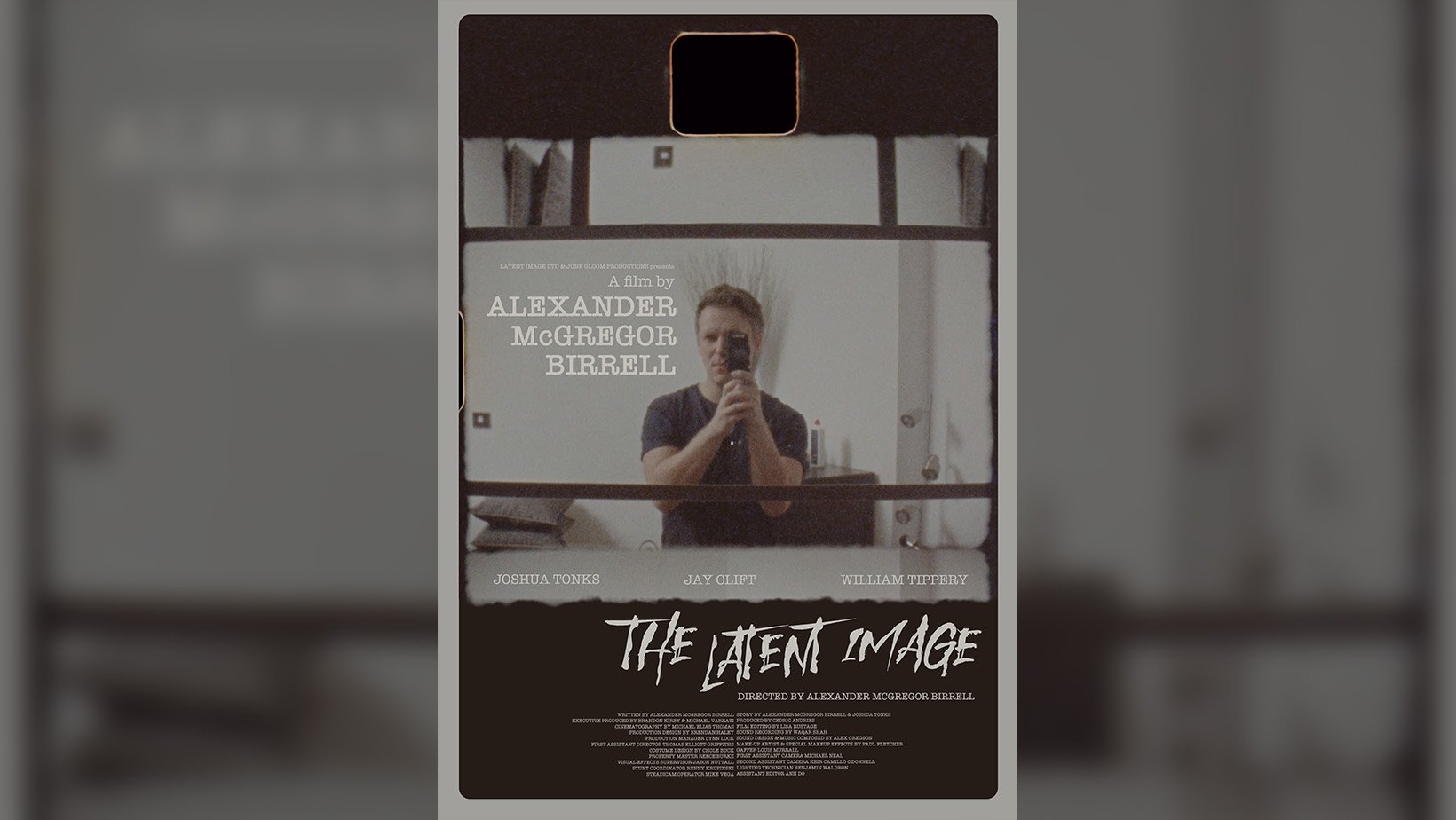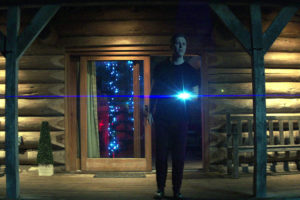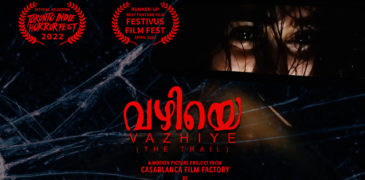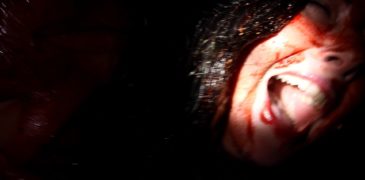
The Latent Image is a 2022 British gay horror mystery, written and directed by Alexander McGregor Birrell with additional writing from the film’s main star, Joshua Tonks. Beginning his career in 2010, Alexander began directing the feature-length sci-fi horror Braincell (2010) and has since directed a number of short films. Whereas the film’s writer/main star Joshua is mostly known as an actor, performing in a number of short films. The Latent Image first began life as a short made by the creative duo in 2019, later being reworked into this feature-length film.
After heading to an isolated cabin to complete his work, a thriller author’s latest book seemingly comes to life as a mysterious, injured American arrives at the writer’s domicile – mounting sexual tension and uncontrollable fear.

With storms lashing the forest night outside, our protagonist is left with his newspaper clippings and red string plotting device to battle with character creation and self-reflection. A torn and bleeding American soon arrives, inexplicably, and brings with him a brooding masculinity and more than a little alluring threat, as well as inspiration for our struggling novelist. His rifle, the burning of clothes, and the question of what is in the boot of his muscle car takes on the main interest of the film.
Interior red and blue neon lights contrast with the projector and analogue typewriter, adding a slightly dreamy, retro gleam to the otherwise cliche image of a struggling writer. A regularly utilised tonal score attempts to add to a sense of dread and vulnerability, against the more traditionally prophetic fallacy of lightning flashes outside. At times the camera swings around, in an attempt at directorial flourishes, and the use of a vintage handheld camera, and its silent granular footage of nature, play up to the hipster tendencies of the protagonist
For what is ostensibly a two-hander, that could be made more theatrical by imprisoning the action within the confines of the log cabin, the film is limited by a poor script and includes some bizarre behavioural choices.

The film feels rather slow, and it takes a long time before any backstory is touched upon. Although the characters’ sexuality is prominent, incorporating various visualised fantasies, I didn’t feel like I knew enough about either character to like or engage with them or feel particularly engrossed.
The Latent Image dips its toe into unsubtle meta discussion, with fictional characters discussing fictional characters, and even goes so far as to spell out chunks of subtext. While the incorporation of role-play was a decent way for characters to explore submissive possibilities and the limits of dominance, I had hoped it would be more creative or subversive, making more of its setting and pressurised interactions, but it ended up being rather straightforward, relying on a few too many rug pulls and dream cutaways in attempts to ratchet up the tension. Much of the nudity felt needless, however, and the ending was underwhelming, while the whole film contained too many jarring switches to be considered a noteworthy final product.
Overall, The Latent Image was fairly well handled, considering the limited budget, and it isn’t terribly acted, although it struggles to successfully film on-screen climactic violence.

More Film Reviews
The Loneliest Boy in the World (2022) – Just Dig Up A Best Friend If You Need One
After the tragic loss of his mother, Oliver is threatened with state custody unless he can find a new family. And so Oliver does just that… by digging one up…
Flesh Games (2023) Film Review – An Escalating Game of Cruelty [Unnamed Footage Festival 7]
Hailing from a dead-end suburban neighborhood in Northern Illinois, a group of friends have taken to idolizing the show Jackass and are eager to make their own version; calling it…
Satan War (1979) Film Review – We Have Amityville at Home! [Fantastic Fest]
Satan War is a 1979 Satanic exploitation horror, written and directed by Bart La Rue. Whilst mostly known as a TV actor who had starred in over 20 roles, including…
Vazhiye (2022) Film Review – A Found Footage Horror First
To be the first at anything is always an exciting prospect, particularly when that label becomes exponentially less attainable with time. While there have been a few found-footage films to make…
The Outwaters (2022) Film Review – Is Humanity Pointless After All?
The found footage film subgenre still has it. I never knew a FF film could be as profound as it is scary, given that its restricted legroom can only do…
In A Violent Nature (2024) Film Review – A Five Star Slasher From Chris Nash
Chris Nash’s In A Violent Nature (2024) will get under your skin and claw at your brain from the inside, leaving you begging to look away, but you won’t….

![Flesh Games (2023) Film Review – An Escalating Game of Cruelty [Unnamed Footage Festival 7]](https://www.grimoireofhorror.com/wp-content/uploads/2024/03/Flesh-Games-Review-365x180.jpg)
![Satan War (1979) Film Review – We Have Amityville at Home! [Fantastic Fest]](https://www.grimoireofhorror.com/wp-content/uploads/2024/09/Satan-War-cover-365x180.jpg)

